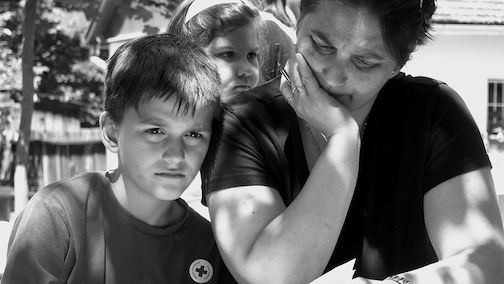Relationships: The Effects of Emotional Incest
By Dr. Margaret PaulMay 24, 2008
Did one of your parents make you responsible for their feelings? If so, you might be suffering in your relationships from the consequences of emotional incest.
 Did one or both of your parents make you responsible for their feelings? Did they come to you with their problems about the other parent? Did they lead you to believe that you could say or do something that would make them feel okay or make them feel badly? Did they say things like, "You make me so happy," or "You make me so angry," or "You are hurting me"?
Did one or both of your parents make you responsible for their feelings? Did they come to you with their problems about the other parent? Did they lead you to believe that you could say or do something that would make them feel okay or make them feel badly? Did they say things like, "You make me so happy," or "You make me so angry," or "You are hurting me"?
This is emotional incest
It has deep repercussions later in life. For example:
Do you find yourself wanting a relationship but never finding the right one, or getting involved with unavailable people? This may be the result of emotional incest, which gave you a deep fear of having to take responsibility for a partner's feelings. While you really want a relationship, on a deeper level, it will feel engulfing to you if you believe that you are responsible for another's feelings.
If you are in a relationship, are you a caretaker, taking responsibility for your partner's feelings? Are you drained by the relationship due to taking responsibility for his or her feelings while ignoring your own? This may be the result of emotional incest - of being taught that others' feelings are your responsibility.
If you are in a relationship, do you find yourself cheating on your partner as your way to get out of feeling trapped? This may be the result of emotional incest - of feeling terrified of being at the other end of your partner making you responsible for his or her feelings.
Are you constantly angry at your partner for not being there for you in the way you expect - sexually or emotionally? This may be the result of emotional incest. You might have become just like your emotionally incestuous parent, a taker - making others responsible for your feelings.
Whether you find yourself on the caretaking end, or the resistant/taker end of the codependent system, you will have problems in your relationship. Emotional incest takes a big toll on relationships.
The way out is two fold:
1. You need to fully understand and accept that you are not and never have been responsible for your parent's feelings or anyone else's wounded feelings of anxiety, depression, guilt, shame, anger, emptiness or aloneness. Since you have no control over people's thoughts, you have no control over their feelings. You also have no control over the life events that might cause painful core-self feelings - such as grief over losing a loved one.
2. The other side of the coin is that you are 100% responsible for your own feelings - the feelings that come from your thoughts and the feelings that come from painful life events. You are responsible for your thoughts that create pain, and for nurturing your core painful feelings. Just as you are never the cause of others' feelings, others are never the cause of your feelings.
If you are terrified of being in a relationship, or you feel burdened by a relationship, or you feel unsatisfied in a relationship, you can be released from the terror, the burden, or the dissatisfaction by releasing yourself of responsibility of others feelings, and by being willing to take 100% responsibility for your own feelings.
As you practice Inner Bonding, practice consciously choosing to take responsibility for your own feelings and consciously letting go of responsibility for others' feelings. You will not believe the sense of joy and freedom you will feel when you are fully able to do this!
Join Dr. Margaret Paul for her 30-Day at-home Course: "Love Yourself: An Inner Bonding Experience to Heal Anxiety, Depression, Shame, Addictions and Relationships."
Join IBVillage to connect with others and receive compassionate help and support for learning to love yourself.
Photo by Barnafe
 Send this article to a friend
Send this article to a friend  Print this article
Print this article  Bookmarked 8 time(s)
Bookmarked 8 time(s)
| Related Articles |
|---|
| Codependent Relationships: Takers and Caretakers |
Comments
| Author | Comment | Date |
|---|---|---|
| Join the Inner Bonding Community to add your comment to articles and see the comments of others... | ||

Daily Inspiration
The challenge on the spiritual path is to reach such a deep place of inner security that we are able to stay open to learning with ourselves and with Spirit, no matter what. This means being able to be loving to ourselves in the face of others attacking, blaming, crazymaking, withdrawing. It means staying open to learning with Spiritregarding our own highest good and the highest good of all, no matter what.
By Dr. Margaret Paul

 Share with Del.icio.us
Share with Del.icio.us Share with Digg
Share with Digg






